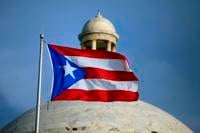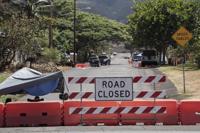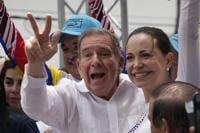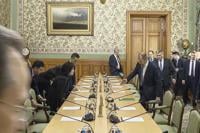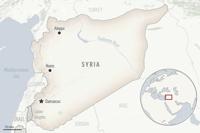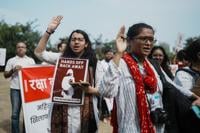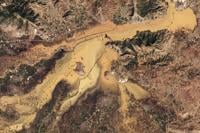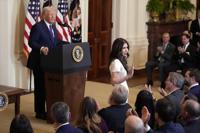SAN JUAN, Puerto Rico (AP) ÔÇö Puerto RicoÔÇÖs elections commission said Tuesday that itÔÇÖs reviewing its contract with a U.S. electronic voting company after hundreds of discrepancies were discovered following the islandÔÇÖs heated primaries.
The problem stemmed from a software issue that caused machines supplied by Dominion Voting Systems to incorrectly calculate vote totals, said Jessika Padilla Rivera, the commissionÔÇÖs interim president.
While no one is contesting the results from the June 2 primary that correctly identify the winners, machine-reported vote counts were lower than the paper ones in some cases, and some machines reversed certain totals or reported zero votes for some candidates.
ÔÇťThe concern is that we obviously have elections in November, and we must provide the (island) not only with the assurance that the machine produces a correct result, but also that the result it produces is the same one that is reported,ÔÇŁ Padilla said.
More than 6,000 Dominion voting machines were used in Puerto RicoÔÇÖs primaries, with the company stating that software issues stemmed from the digital files used to export results from the machines.
The contract between Dominion and the elections commission ends June 30.
Jos├ę Varela, vice president of Puerto RicoÔÇÖs House of Representatives, called for Padilla to appear at a public hearing Thursday to address the issues.
ÔÇťWe cannot allow the publicÔÇÖs confidence in the voting process to continue to be undermined as we approach the general elections,ÔÇŁ he said.
The problems called to mind the islandÔÇÖs botched 2020 primaries, when a lack of ballots at some centers forced the government to reschedule voting in a first for the U.S. territory.
On June 2, Puerto Rico held primary elections to select gubernatorial candidates for the pro-statehood New Progressive Party and the Popular Democratic Party, which supports the islandÔÇÖs territorial status.
In a surprise upset, Jenniffer Gonz├ílez, Puerto RicoÔÇÖs congressional representative, beat Gov. Pedro Pierluisi in the primary held by the New Progressive Party. Meanwhile, Puerto Rico Rep. Jes├║s Manuel Ortiz defeated Sen. Juan Zaragoza in the primary held by their Popular Democratic Party.
Both parties reported hundreds of ballots showing inaccurate results, with the PNP reporting over 700 errors and the PPD pointing to some 350 discrepancies. These inaccuracies affected ballots for positions including governor, mayor and resident commissioner.
In response to the discrepancies, the elections commission conducted a full vote tally and audited paper receipts from hundreds of ballot-counting machines.
Edwin Garc├şa Feliciano, Puerto RicoÔÇÖs Ombudsman, called the incident a ÔÇťthreatÔÇŁ to the islandÔÇÖs electoral system and called on the governor and the islandÔÇÖs federal control board that oversees the islandÔÇÖs finances to establish a plan to guarantee a better outcome in the upcoming general elections.
ÔÇťAll planning is based on resolving emergencies, including unlikely ones,ÔÇŁ Garc├şa Feliciano said. ÔÇťBut predictable circumstances, which are well known to the public, cannot be addressed by improvisation and in a rush.ÔÇŁ
The island is now preparing for the November general election, where voters will choose a new governor and local representatives. While Puerto Ricans are U.S. citizens, they are not allowed to vote in the . ___
Follow APÔÇÖs coverage of Latin America and the Caribbean at


